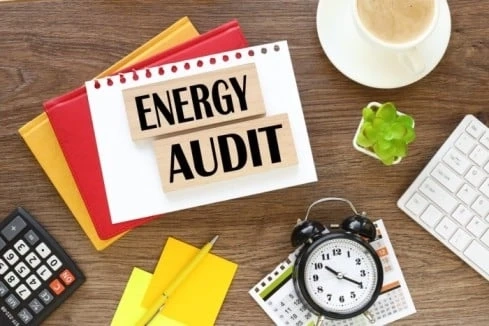San Francisco, known for its commitment to sustainability and environmental responsibility, places significant emphasis on energy audits to ensure energy efficiency in its buildings. Failing to meet the requirements of these audits can have severe consequences for property owners and businesses operating in the city. This article delves into the importance of energy audits in San Francisco and the potential penalties associated with non-compliance.
Understanding San Francisco Energy Audits
Energy audits play a critical role in identifying energy inefficiencies and suggesting improvements. In San Francisco, energy audits aim to assess the energy consumption of buildings and identify potential areas for improvement. These audits are conducted by certified professionals who thoroughly evaluate energy systems, equipment, insulation, lighting, and more.
There are various types of energy audits conducted in San Francisco, ranging from basic assessments to more comprehensive audits. Basic audits provide a general overview of energy usage, while more detailed audits involve in-depth data analysis and equipment inspections. Each type serves a specific purpose and helps property owners prioritize their energy efficiency goals.
The responsibility for conducting energy audits in San Francisco lies with both public and private entities. Regulatory bodies such as the San Francisco Department of the Environment (SF Environment) and the California Energy Commission (CEC) oversee the compliance and enforcement of energy efficiency standards.
Penalties for Failing Energy Audits
San Francisco has established a robust legal framework and regulations surrounding energy audits to ensure compliance with energy efficiency standards. Failure to meet these requirements can result in penalties and other consequences.
Common violations leading to failed energy audits include inadequate insulation, outdated lighting systems, inefficient HVAC systems, and suboptimal building envelope design. These violations not only contribute to excessive energy consumption but also have a negative impact on the environment.
The consequences and penalties for non-compliance vary depending on the severity of the violations. San Francisco authorities may issue warnings, compliance orders, or monetary fines to encourage corrective actions. In some cases, repeated failures to comply with energy audit regulations can even result in the suspension of operating licenses or permits.
Financial Implications of Failed Energy Audits
Failing energy audits can have significant financial implications for property owners and businesses. Regulatory bodies impose fines and penalties based on the severity of the violations. These fines can range from hundreds to thousands of dollars, depending on the size and nature of the building.
In addition to the imposed fines, property owners may also incur additional costs for rectifying the identified violations. This can involve upgrading equipment, improving insulation, replacing inefficient lighting systems, or modifying the building envelope. These expenses can quickly add up, straining budgets and impacting the overall profitability of businesses.
Moreover, failing energy audits can lead to a tarnished business reputation, potentially resulting in customer loss. With a growing awareness and preference for environmentally responsible practices, customers are more likely to support businesses that prioritize energy efficiency and sustainability.
Avoiding Failed Energy Audits
To avoid the penalties associated with failed energy audits, property owners and businesses should proactively prioritize energy efficiency compliance. Implementing energy-saving measures such as LED lighting, optimized HVAC systems, and smart thermostats can significantly reduce energy consumption.
Regular maintenance and upgrades to energy systems are vital to ensure optimal performance and adherence to energy efficiency standards. Engaging professional energy auditors can provide valuable insights and recommendations for improving energy efficiency.
Staying updated with relevant regulations and guidelines is essential. Regularly reviewing energy efficiency standards and guidelines outlined by SF Environment and CEC ensures compliance and minimizes the chances of failed energy audits.
Benefits of Successful Energy Audits
Successfully passing energy audits not only helps property owners avoid penalties but also offers several tangible benefits. Lower energy consumption and cost savings are among the most advantageous results of energy audits. By identifying and addressing energy inefficiencies, businesses can significantly reduce their energy bills and improve their bottom line.
Successful energy audits also contribute to a positive environmental impact. Reduced energy consumption results in lower greenhouse gas emissions, helping combat climate change and promoting a sustainable future.
Furthermore, completing energy audits makes property owners eligible for financial incentives and rebates. Local and state governments often offer programs that incentivize energy-efficient upgrades, providing financial support to those who prioritize sustainability.
Conclusion
Energy audits play a crucial role in San Francisco\'s commitment to energy efficiency and sustainability. Failing to comply with energy audit regulations can result in penalties, additional expenses, and potential customer loss. Prioritizing energy efficiency, engaging professional auditors, and staying updated with regulations are key to avoiding failed energy audits.
Successful energy audits offer numerous benefits, including lower energy costs, positive environmental impact, and access to financial incentives. By embracing energy efficiency, property owners and businesses in San Francisco can contribute to a greener future while maintaining compliance with energy efficiency standards.



